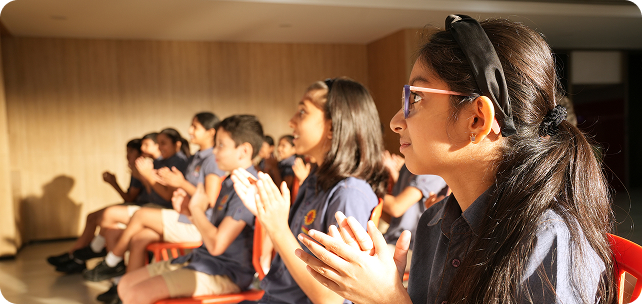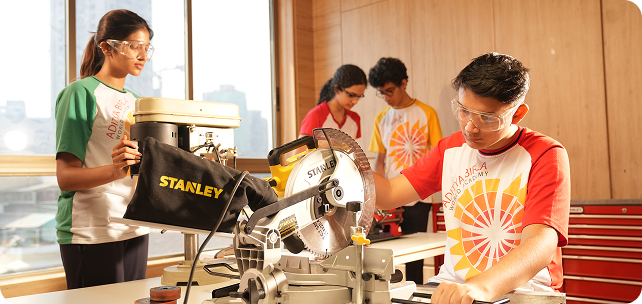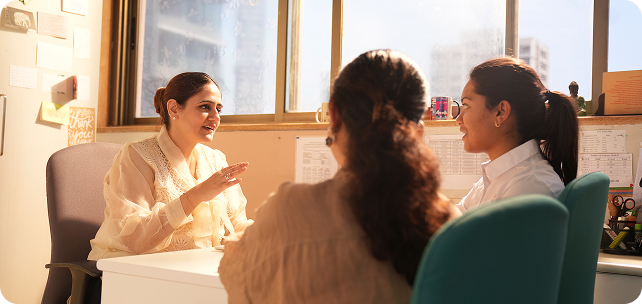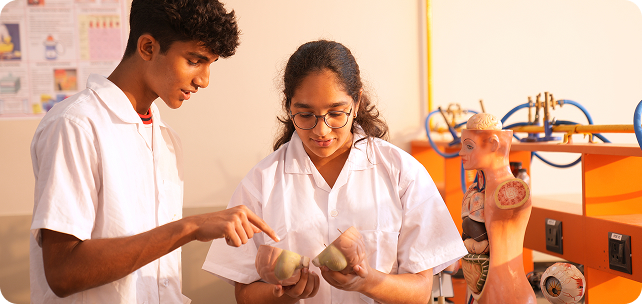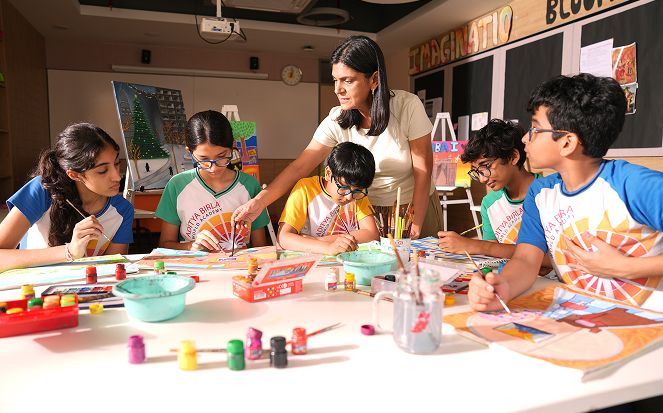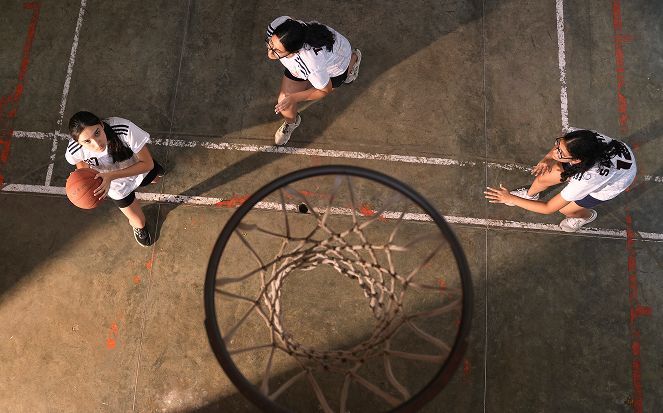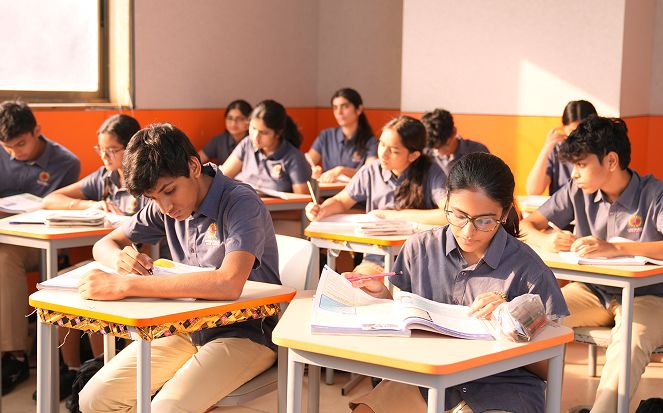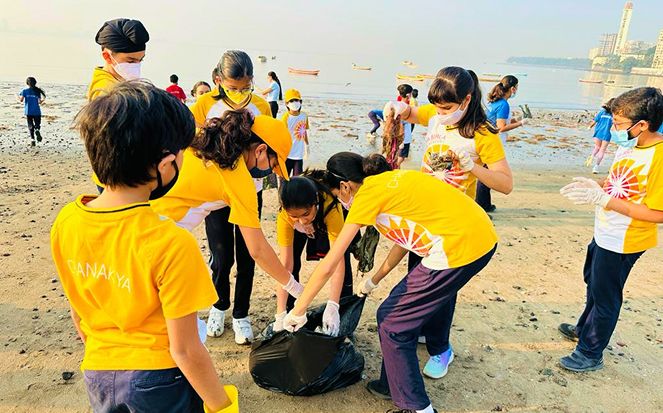For Grades 11 & 12, ABWA’s A-Level Programme develops the students to become future-ready and learn independently. This curriculum challenges students to think critically, preparing them for higher education and beyond. To support informed decision-making, we conduct orientation sessions and family interactions to guide students in choosing the right subjects in line with their strengths and aspirations.
Distinctions that define our approach

Life skills training
Building adaptability and resilience, we promote hands-on programmes that prepare students for the uncertainties of tomorrow.

Character development
This curriculum goes beyond textbooks to instil integrity, courage, and passion, setting students on a journey of exploration, purpose, and personal growth

Experiential learning
A real-world experience-driven learning programme helps students apply knowledge in a dynamic and practical environment.

Broad horizons and flexible choices
A-Level students are encouraged to broaden their academic horizons by pursuing additional subjects beyond the school’s offered combinations with complete freedom.
Mrs. Franak Bandekar
Secondary School & A Level Head
"Don't wait for the opportunity. Create it."
-George Bernard Shaw
The path to success is shaped by resilience, determination, and the courage to strive for the extraordinary. True faith is tested when challenges arise. Setbacks are inevitable, but it is through rising after each fall that our students discover their true strength. We nurture them to keep moving forward, trusting that their persistence will lead to the success they’ve envisioned. We hope their story will be one of strength—a story of someone who never gave up, who never settled, and never chose the ordinary.


A key to unlocking global potential
The hallmark qualities that students develop

Confident thinkers
Engaging in ideas, both of their own and others with conviction and curiosity.


Responsible individuals
Taking ownership of their actions, leading by empathy and respect.
Innovative problem-solvers
Embracing new challenges boldly to ensure a meaningful result.


Reflective learners
Refining their ability to learn and evolve through critical thinking.
Engaged changemakers
Being socially and mentally active to overcome obstacles in a dynamic environment.




Translating knowledge into real-world success
The internship programme
Students apply classroom learning in professional settings, gaining practical experience and real-world insights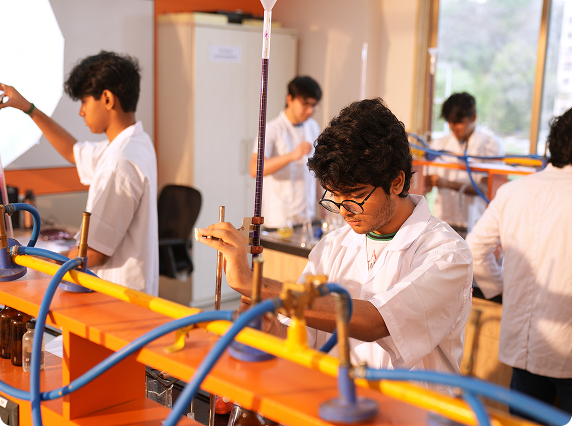
The student social responsibility programme
Aims to instil in students a deep sense of responsibility and ethical leadership, making a tangible difference in society.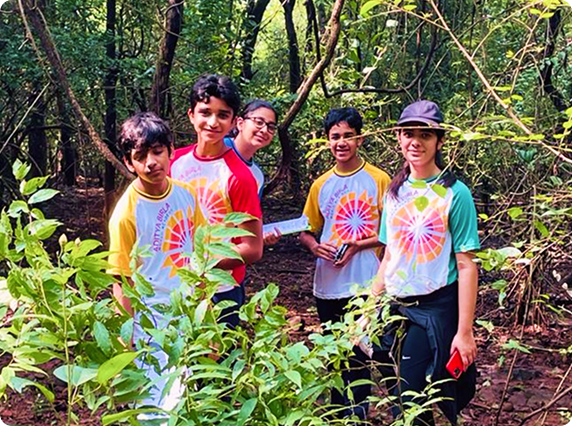
The Cambridge International Project Qualification
Equips learners with research, critical thinking, and project skills, providing a strong edge for university readiness and admissions.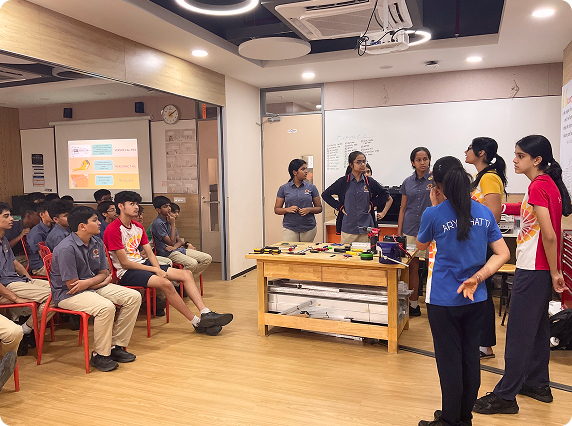
Student social responsibility (SSR)
SSR is a key part of the A Level curriculum that enables students to engage meaningfully with real-world issues through structured community service. Each student participates in guided work with NGOs or school-led initiatives, conducted outside of school hours, and documents their experience in a portfolio assessed as part of their academics. Feedback from NGO Programme Officers is part of the evaluation
Inspired minds in action




“Great leaders don't just simplify, they listen with compassion. By embracing complexity, understanding deeply, and leading with empathy, they build trust, clarity, and lasting connection.”





